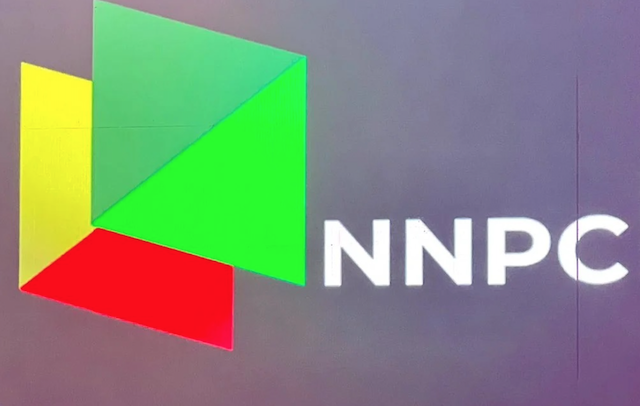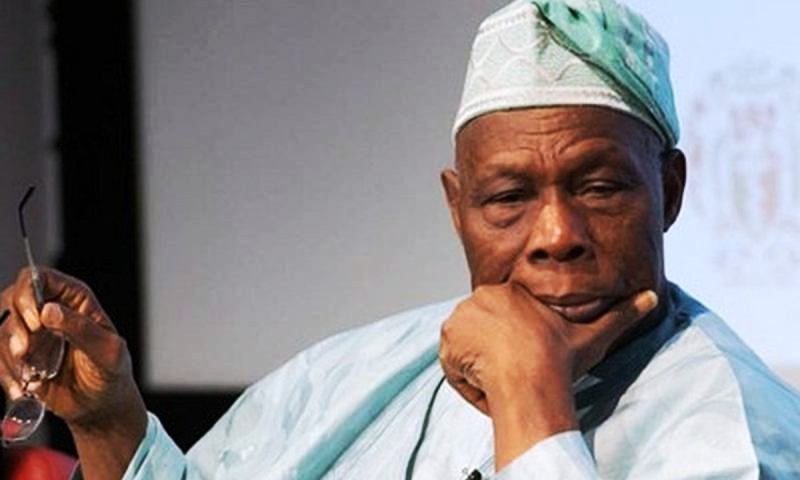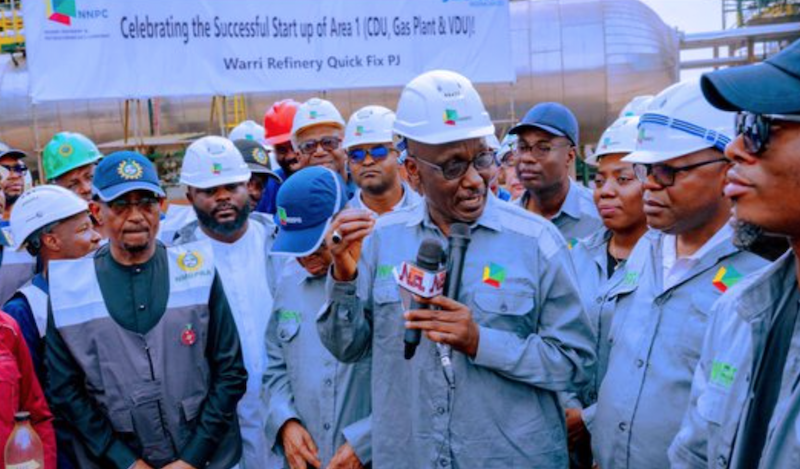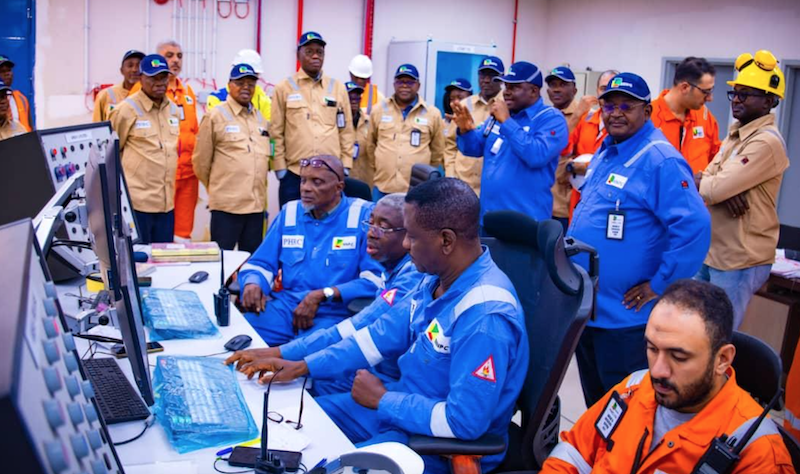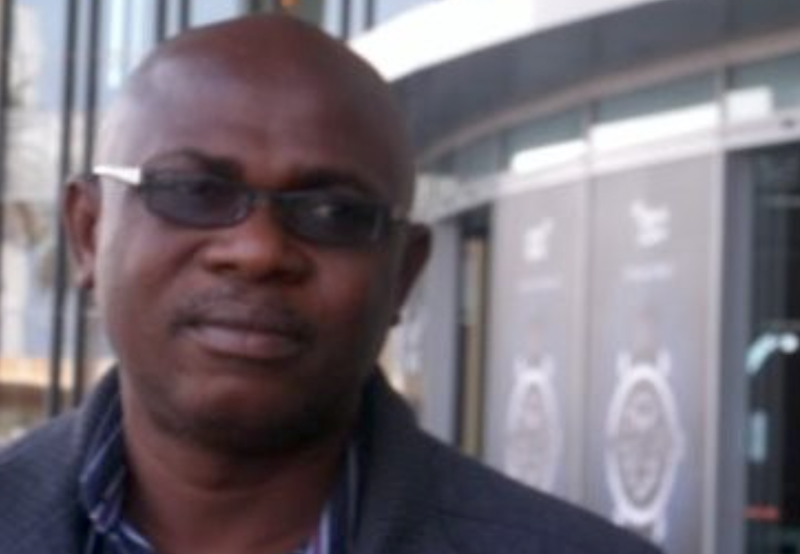By Ikeddy ISIGUZO
PUT nothing beyond Nigerians. Some of us lug the bragging rights to understanding Nigeria, that Nigeria cannot confuse them. I willingly concede knowledge of Nigeria to them.
Nigerians are not strangers to confusion. We bring confusion to conversations. We praise our abilities to confound issues, confront simplicity with befuddlements and then seek the understanding of those who question a policy direction.
Any attempt to deny the Nigerian National Petroleum Company Limited, NNPCL, the unalienable rights to confusion should be boldly resisted on NNPCL’s behalf.
Many Nigerians concur to nothing just not to be left out in the journey to nowhere. We learnt long ago that patriotism means supporting the government in power. You do not need to task the government about its actions.
So, let us agree with NNPCL that the old refinery in Port Harcourt is working. Those who claim otherwise do not know a thing about how these things work. They could be among those who have sworn not to see anything good in the administration of President Bola Ahmed Tinubu.
They are unIike us whose loyalty is completely blind; so blind that we give no chance to enhancing our sights. It is not our fault that some have decided not to love their country.
An instance of the benefits of blind loyalty, in alignment with the President’s delight over Port Harcourt refinery, is the nimiety of fuel in our filling stations. It takes loyalty of this hue to notice that fuel is available. Instead of rejoicing that there is no fuel scarcity, people who used to buy fuel at “any price” are asking at what price the fuel from Port Harcourt refinery is sold. They pretend they could identify the source of the fuel they use.
Only the President is permitted to recount the dangers Nigeria harbours when addressing prospective foreign investors. Ours is to find areas of the country to praise. We cannot contradict the President when he de-markets Nigeria. He is the President.
We should understand that in electing a government, the people simply lease the country to the elected, who are at liberty to do whatever they want with Nigeria. The President can turn an official visit to a private visit. It is his call, not calling.
Unlike most leases, the terms of our relationship with government are unclear. The privileges of governments are under-stated. Too generous as we think the lease granted the government is, we have had serial cases of government appropriating aspects of the lease that it was given.
NNPCL understands these things more than others. There should be no surprises there. The Minister of Petroleum Resources is the President. NNPCL might as well have immunity without us knowing. It could be a beneficiary of the powers of the Minister of Petroleum Resources.
History has taught us that successive governments harvest precedents to feather their own interests. We rate governments by their abilities to treat us worse than the preceding ones. We are often wondering why we are always wrong, and the government always right in its ways.
NNPCL, a government company, attends to us with all the arrogance it can muster in a relationship where a supposed servant looks askance at the master, the public.
Tired of our too many questions, NNPCL is forging ahead. If we expect the numbers of tankers rolling in and out of the Port Harcourt refinery premises, old and not so old, to be the only signs of activity at the facility, NNPCL has exported products to Dubai through Wonder Star MR1.
Could the NNPCL counter-poise be the answer to “when will the price of NNPCL’s products be reduced” since they are not imported? NNPCL is too busy attending to foreign clients that you should firm up your interests by paying in foreign currency.
Have we forgotten that Mele Kyari, the Group Chief Executive Officer of NNPCL, in July 2024 said Nigeria would be a net exporter of petroleum products by December 2024? Has the President, Minister of Petroleum Resources, not fulfiled another promise?
Let the naysayers know that the President is winning. Let those who want fuel ask not the price.
Fuel is available. Availability is more important than price until availability becomes a confusion.
Finally…
ENYIMBA Economic City FZE will unwrap the project to businesses, especially, SMEs, at the South East Business and Investment Summit, SEBIS, that runs from 11-13 December 2024. It will be another big beginning in the re-making of the South East.
DELE Farotimi’s arrest, is proof, if one is needed, that we are in the era of “legitimate lawlessness”. The police, a law enforcement agency, will skip the law on a 320-journey to make an arrest in Lagos from Ado-Ekiti, without a warrant authorising the arrest, hence some initially called it an abduction. If Farotimi broke the law, a lawless response, as we have seen so far, equates to self help which is a breach of the law. “He will have his day in court” is an inadequate response for the abuses of the law.
UNDER what law is the Federal Government sacking its employees who are graduates of some universities in Republic of Benin? Was there a government order or law banning those universities by 2017? It is a wonder that the government, though nothing is beyond government, could make a decision in 2024, and it takes effect from seven years ago. Is it not an admission of its incapacities that government cannot detect fake credentials? If the suspects are guilty as charged, should they not be facing the law and refunding salaries that they have earned illegally? Just think about this: some of those making these decisions could be parading fake credentials even at the very top. For the records, a journalist’s investigative report led the government to make this retroactive order – one more thing to blame on these journalists.
EACH time I read of another banditry kingpin being eliminated, I get the impression that there are too many of these kingpins that we really need another title for important officials in the hierarchy of Nigeria’s bandits. They have made their mark. Those who eliminate them, too, deserve recognition of their feats.
THE fight against corruption is doomed once its expansive scopes provide for legal abhorence of transparency. How can the Economic and Financial Crimes Commission, EFCC, be in celebration over a latest forfeiture case that involved an estate of 753 units of duplexes and other apartments and the public is not entitled to know the owner of the property?
We are left to speculate as we are still doing seven years after Justice Muslim Hassan granted final forfeiture orders for the following: “The sum of $43,449,947 found by the Economic and Financial Crimes Commission at Flat 7B of No. 16 Osborne Road, Osborne Towers, Ikoyi, Lagos, which sum is reasonably suspected to be proceeds of unlawful activities to the Federal Government of Nigeria”. A made a similar order for £27,800 and N23,218,000, found in the same apartment. Did we know who had the money or what government finally did with it?
ISIGUZO is a major commentator on minor issues

